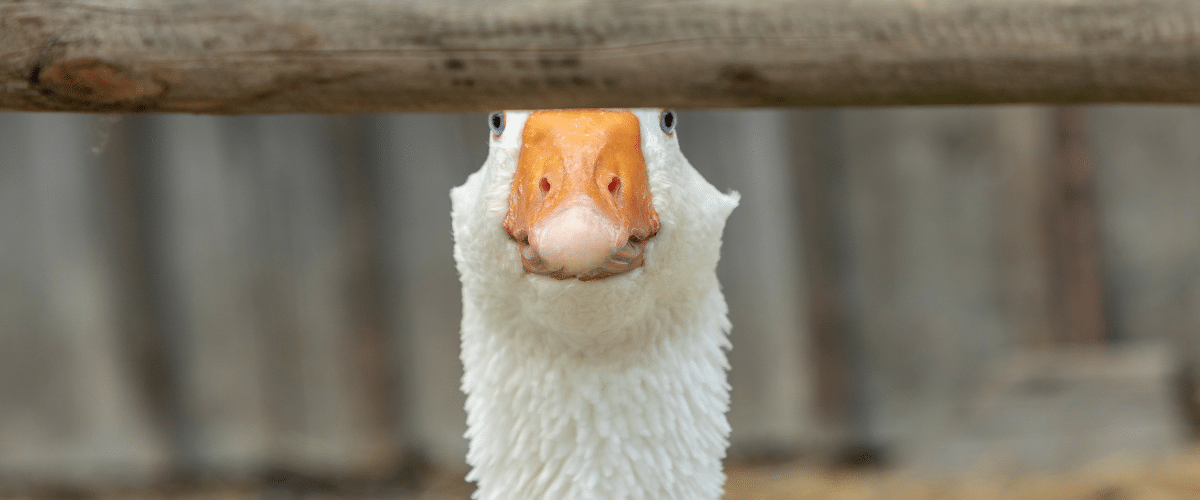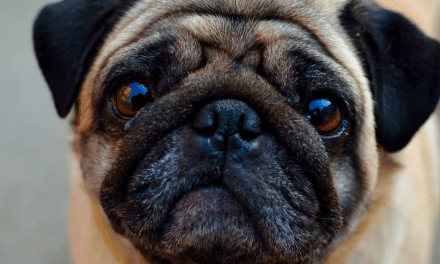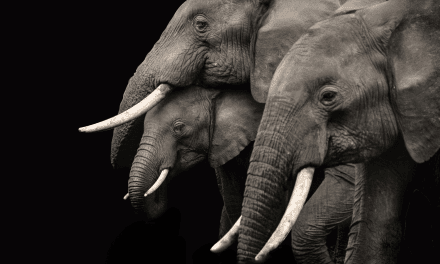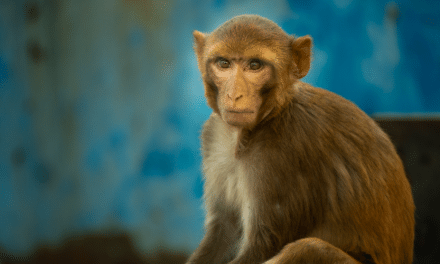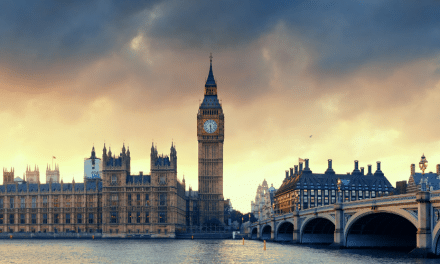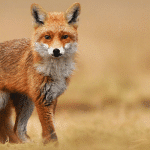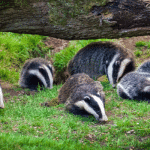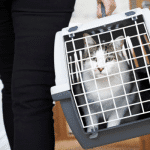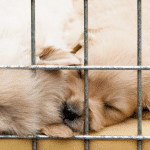By Jenny Canham, Campaigns and Public Affairs Specialist, Animal Equality UK
Animal Equality, a leading animal protection organisation, has joined with cross-party MP representatives to respond to DEFRA’s recent announcement of plans to implement a ban on foie gras imports ‘in the next few months’. In the latest issue of The Observer,1 Animal Equality released an open letter urging George Eustice MP and Lord Zac Goldsmith to share a concrete roadmap, publicly outlining when and how the ban will be written into law.
The production of foie gras in the UK is illegal, on animal cruelty grounds, but the country still imports around 200 tonnes of the product each year.2 The product is then sold by a select number of high-end retailers and delis throughout the country. After years of campaigning from Animal Equality and other animal protection organisations to ban the importation and sale of foie gras, DEFRA’s announcement is very welcome news. We remain cautiously optimistic, however, since a lot of work must still be done to ensure that this ban is implemented as soon as possible. Until then, ducks and geese will continue to endure agonising treatment while the UK market supports production of this vile ‘delicacy’.
The UK public strongly backs the call to ban foie gras in the UK: Animal Equality is currently celebrating surpassing the milestone of 200,000 signatures on the relevant petition.3 It’s clear: the public wants foie gras banned. Celebrities are also keen to show their support for the campaign, with endorsements from Thandiwe Newton, Ricky Gervais, and Alan Carr. Peter Egan even joined Animal Equality to witness the cruelty that takes place on foie-gras farms first-hand.4
Many MPs have been keen to speak out, with Sir Mike Penning MP currently leading an Early Day Motion. Also, with the help of Henry Smith MP, Animal Equality previously hosted a reception in the House of Commons, prompting an adjournment debate in Parliament on the proposed ban.
The public’s desire to see a ban enacted soon is understandable given the cruelty involved in production of foie gras. The force-feeding process (known as gavage) involves forcing a tube down the throats of ducks and geese, to funnel inside of them larger amounts of food than they would ever willingly ingest. An abundance of scientific evidence, including a study conducted by the University of Cambridge in 2015,5 shows that foie gras production by force-feeding generates severe physical and psychological pain for the animals involved, and not only when the tube is down their throats. The production process causes their livers to swell to 10 times their natural size before the animal’s diseased liver is sold and marketed as foie gras.
The process of gavage is considered incompatible with the provisions of the Animal Welfare Act (2006), as well as The Welfare of Farmed Animals Regulations (across England, Northern Ireland, Scotland, and Wales). Domestic legislation states that: ‘Animals shall be fed a wholesome diet which is appropriate to their age and species and which is fed to them in sufficient quantity to maintain them in good health, to satisfy their nutritional needs and to promote a positive state of well-being.’ And: ‘No animals shall be provided with food or liquid in a manner, nor shall such food or liquid contain any substance, which may cause them unnecessary suffering or injury.’
Countless UK companies have already turned their backs on foie gras. In February, Fortnum and Mason made the decision to stop selling it.6 In response, Lord Zac Goldsmith (Minister of State and Animal Welfare Minister) tweeted, ‘Foie gras is unbearably barbaric. It’s hard to imagine anyone could watch the process and still enjoy eating it.’’ Also, thanks to Animal Equality’s investigations showing the harsh realities behind foie gras production, the Tate Modern museum also dropped foie gras from its menu.7
Animal Equality’s open letter is signed by Ministers from every country in the UK, including Hilary Benn MP (Labour Party), Ben Lake MP (Plaid Cymru Party), and Jim Shannon MP (Democratic Unionist Party). Dr Lisa Cameron MP, another avid supporter of Animal Equality’s campaign, said, “This is very welcome news and I am pleased to see that action is being taken. Foie gras is an immensely cruel product which causes a huge amount of animal suffering. We cannot rightly think of ourselves as a nation of animal lovers whilst still selling foie gras, which is why I am joining Animal Equality’s call to implement a ban on foie gras imports and sales as soon as possible!”
Foie gras has no place in our society. While we are optimistic about this historic legislation finally coming into place, it is critical that the Government now sets a date and specifies its concrete plans for a ban. This needs to be written into law urgently – these animals have suffered for long enough.
For more information and to be part of Animal’s Equality work to hold the Government accountable on securing a ban on foie gras, sign up to become an Animal Protector: https://animalequality.org.uk/animalprotectors/
1 https://www.theguardian.com/world/2021/mar/28/mps-unite-to-call-for-total-ban-on-wicked-foie-gras-in-the-uk
2 https://www.franceagrimer.fr/fam/content/download/34895/document/STA-VBL-FOIE%20GRAS-2014-11- 18.pdf?version=3
3 https://animalequality.org.uk/act/ban-force-feeding
4 https://animalequality.org.uk/news/breaking-harrowing-scenes-of-ducks-and-geese-being-ruthlessly-force-fed-filmed-on-a-farm-in-france/
5 https://bit.ly/3sybw7I Professor D.M. Broom – Dr. I. Rochlitz – “The Welfare of Ducks in Foie Gras Production”
6 https://www.dailymail.co.uk/news/article-9248741/Fortnum-Mason-axes-sale-torture-tin-foie-gras-decades-pressure.html
7 https://animalequality.org.uk/news/victory-tate-modern-drops-cruel-foie-gras-from-its-menu/

